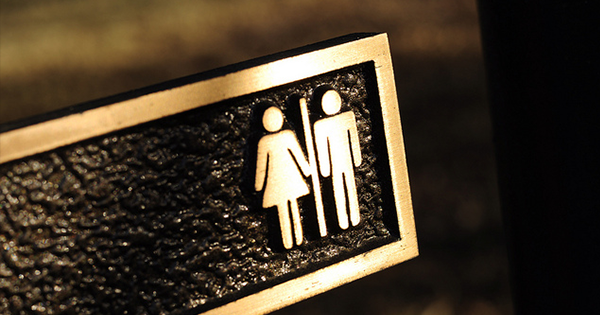
I am rarely misgendered by people under 40. Conversely, hardly anyone over 40 can avoid, for very long, putting a “he” or “him” or “sir” on me. And it’s rare for people over 70 to squeeze out a single appropriate pronoun. (One older friend still refers to me as “he/she” in her writing.)
This must have something to do with neuroplasticity. The same brain capacity that gives young people facility for picking up languages and preternatural ease with technology may also afford them trans competence: the ability to correctly identify and address us without blinking an eye. Artists, I’ve noticed, have higher trans competence than doctors, baristas at Starbucks do much better than employees of the TSA, friends make the transition more easily than family, and women as a group are far superior to men at this.
The Hindi community at the Integral Yoga Institute around the corner takes the prize. “What’s your name now?” said Rudra at the registration desk, when I came through the door to take class for the first time in a headscarf and feminine t-shirt. He had “Diana Goetsch” entered into that database faster than you can say Om Shanti. “Tell me what to call you,” said the Swami, giving me a hug before class. “Hey Diana,” said Rudra on my way out, “I’ve got this female-to-male friend afraid to come to Yoga. Would you talk to him?”
When others misgender me, it’s more than just a faux pas of etiquette: it’s an indication that they don’t yet, or at that moment, see a female person in front of them. I had a reunion with a longtime friend who sat across from me in a restaurant booth remarking how comfortable I seemed as a female. But when the waiter came, she said, “He’ll have the burger deluxe.” You can tell some people you’re trans female (and therefore female), and they nod their head yes, but they still can’t process it. You might as well tell them you’re a hamburger.
Misgendering can get dangerous. The religious right in Houston recently ran TV ads depicting an adult male in dungarees, untucked shirt, and a golf cap cornering a little girl in a bathroom stall. “No men in women’s bathrooms,” went the slogan. The only problem is that the ads were targeting trans women. To defeat a referendum protecting 15 classes of people from discrimination in employment, housing, and public accommodations, conservatives formulated the strategy of renaming it “the bathroom ordinance,” misgendered us, and portrayed us as sex offenders. It worked: Houston wiped out what every other major city in Texas has in place—and the vote (61 percent to 39 percent) wasn’t even close.
I’m pretty sure that prior to any insult I may feel at being misgendered comes a kind of ocular insult felt by the other. This view was captured by a disturbing letter from a New York Times reader in response to an Op-Ed on gender identity: “This person may indeed experience himself as a woman, but what about my experience? Why should this person’s version of reality (I’m a woman), trump my version of reality (he’s a man)?” In sum: “What gives you the right to tell me what to see, and say?” To which I might reply, “History will have a place for folks like you, right beside George Wallace at the schoolhouse door.” In the meantime, it would be nice for folks like us to have equal rights, and a safe place to pee.

